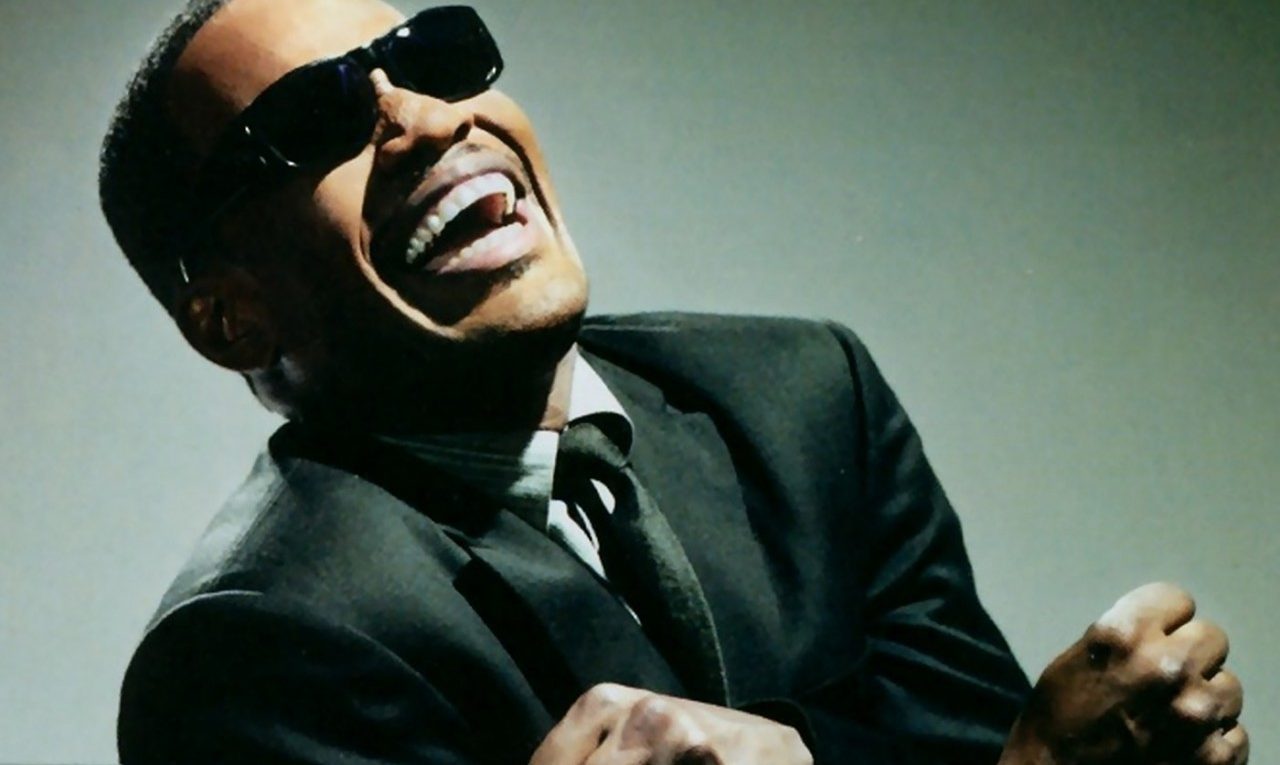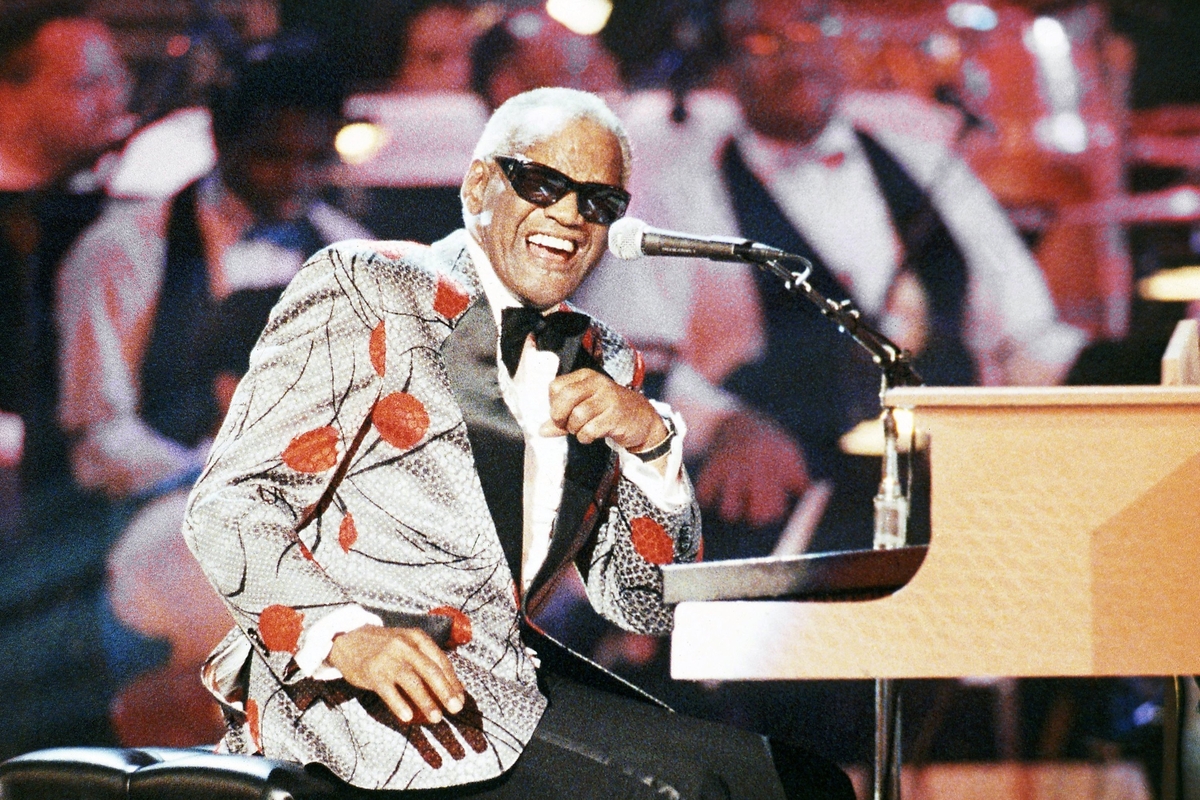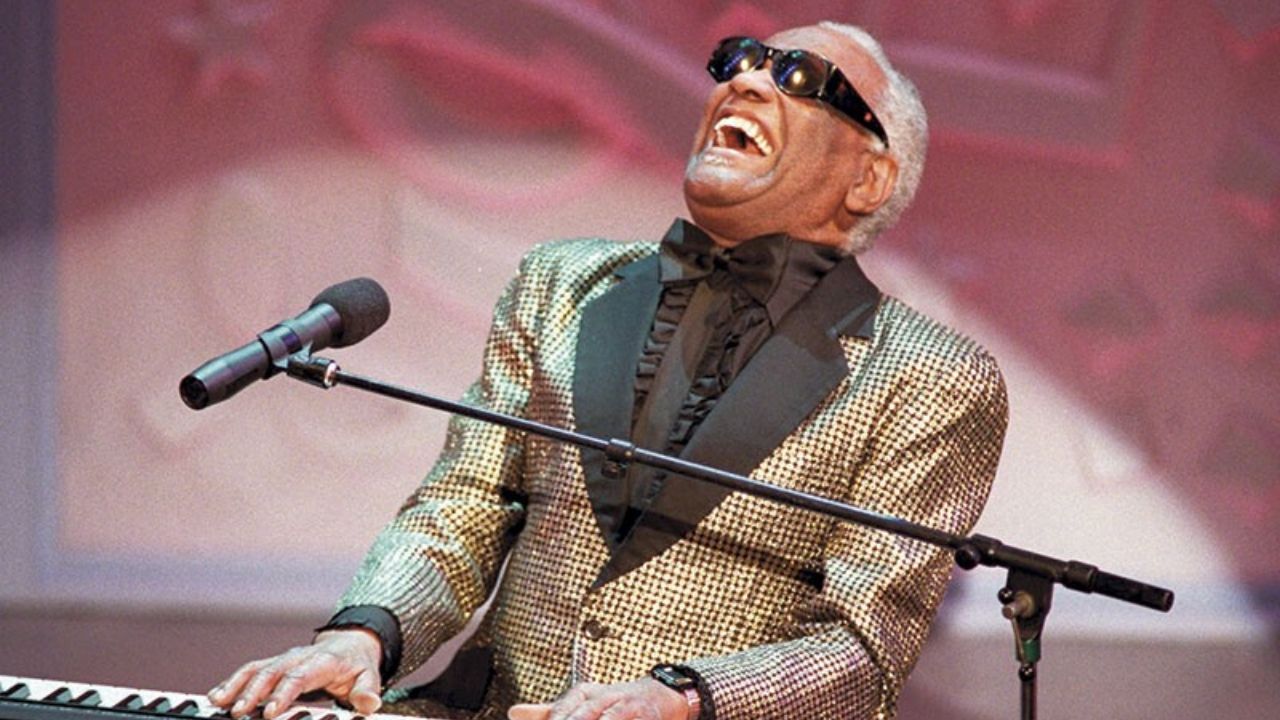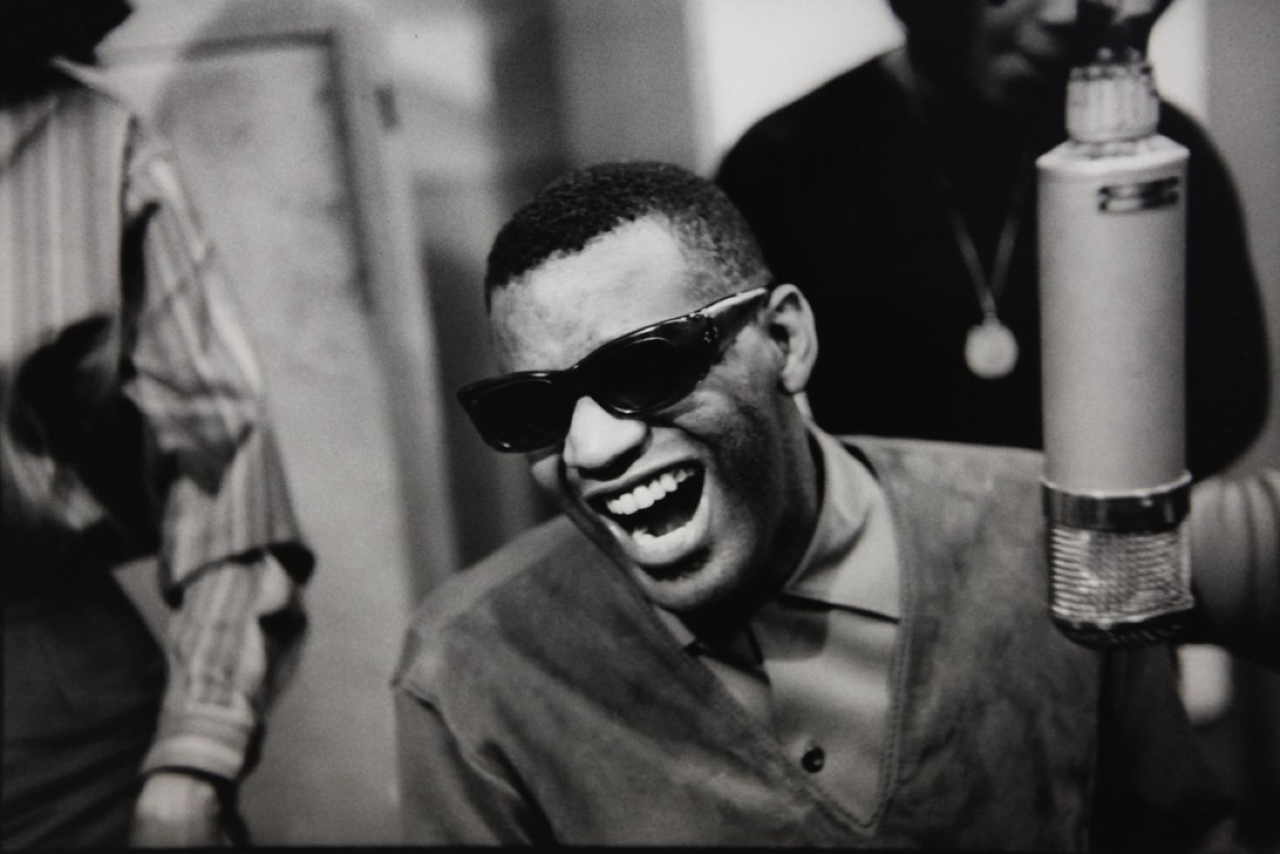Ray Charles Net Worth - The Pioneer Of Soul And The Genius Of His Own Multi-Genre Music Career
Are you interested in Ray Charles' net worth? If so, you've found the proper site. Look closely at Ray Charles net worth and how he became so wealthy.
Author:Alex MercerReviewer:Nathanial BlackwoodAug 06, 2022119.7K Shares2.2M Views

Who got the money that was in Ray Charles net worthafter he died in his Beverly Hills home in 2004 at the age of 74?
In 2004, Ray Charles died and bequeathed the majority of his wealth to the Ray Charles Foundation, a non-profit organization dedicated to helping people who are blind or deaf.
In addition, he left each of his 12 children $500,000 in trust money.
Learn more about the reasons why Ray Charles was famous, his net worth, and the court struggle regarding the money he left behind by reading more about these topics.
Ray Charles - The Pioneer Of Soul Music
There aren't many performers who have left such a musical legacy as Ray Charles has.
Charles, who was born in 1930, has been referred to as "The Genius" by Frank Sinatra (according to the Los Angeles Times).
He surmounted seemingly impossible odds to become one of the most prolific and influential artists of all time.
Ray Charles' music has been sampled by everyone from Kanye West ("Gold Digger," which samples "I Got A Woman") to Led Zeppelin ("Your Time Is Gonna Come," which samples "I Believe to My Soul").
He is widely regarded as the pioneer of the modern soul music genre.
"Ray," a biopic about his life, won Jamie Foxx his first — and only — Academy Award nomination.
And Rolling Stone placed him No. 10 on their list of the Top 100 Greatest Artists of All Time.
In short, he's a legend in his own right.
The Early Life Of "The Genius" Ray Charles
Ray Charles Robinson was born in Georgia in 1930.
At age 3, he became interested in music while watching Pitman play an old upright piano at Pitman's Red Wing Cafe.
Charles was taught by Pitman.
Ray's 4-year-old sibling drowned.
Five-year-old Charles lost his sight.
Charles became blind at age 8 from glaucoma.
Aretha utilized her connections to secure a school for her blind son.
From 1937to 1945, he attended the Florida School for the Deaf and the Blind in St. Augustine, where he learned braille music and classical piano.
14-year-old him lost his mother.
Ray quit school and relocated to Jacksonville, Florida to live with his family friend Charles Wayne Powell.
Ray Charles - The Road To Success
After signing with Atlantic Records, he had his first success in 1953. "Mess Around" is one of Charles' most popular tunes.
Charles grew from there, becoming one of the earliest crossover pop musicians.
"I've Got a Woman" was another hit for Charles in 1954. "This Little Girl of Mine" and "Fool for You" became hits the following year.
By 1958, he was headlining the Apollo Theater and Carnegie Hall. "What'd I Say" became another Ray classic in 1959.
The song mixed gospel, jazz, blues, and Latin music and was his first top ten pop record.
He released his debut country tune and three albums that year.
In 1959, Ray's contract expired and various labels called.
ABC-Paramount gave him a $50,000 annual advance and better royalties than Atlantic.
"Georgia on My Mind" was his first success for ABC-Paramount.
The song won four Grammys.
Percy Mayfield's "Hit the Road Jack" earned him another Grammy.
In 1964, Ray's third heroin arrest ended his career.
In 1966, he returned to the charts after treatment and parole.
By the 1970s, Charles' music was rarely played on the radio.
In 1974, he left ABC and started Crossover Records.
In 1983, he secured a contract with Columbia Records and recorded country albums and duets with Willie Nelson.
His last public appearance was April 30, 2004, at the dedication of his Los Angeles music studio.
His star rose beyond music, hosting SNL and appearing in The Blues Brothers.
His personal life was tumultuous, as revealed in the Oscar-winning film Ray, but his music will be remembered.
The Legend Ray Charles Net Worth
Ray Charles is revered for his work as a recording artist, vocalist, and philanthropist.
He is widely considered to be a legendary figure in the world of 20th-century music.
At the time of his passing, he was estimated to have had a net worth of $75 million.
Ray Charles's early life was marked by extreme obscurity and destitution, in contrast to his later meteoric rise to prominence in the field of music.
The Legal Turmoil After Ray Charles Death
Ray had 12 kids by 10 women.
Each child received $500,000 per his will.
He reportedly told them they'd get more money later.
The children thought this meant they'd get royalties and intellectual property.
His remaining assets were donated to the Ray Charles Foundation, which helps youngsters with hearing and vision problems.
The foundation has $60 million in assets and $5 million in investment income in 2011.
The Ray Charles Foundation has $41 million in assets and $3 million in annual revenue.
According to the LA Times, Charles told his children two years before his death that he was dying of cancer.
He told them about their trust funds and hinted at future money.
Charles' kids thought "getting more money" later meant they'd get his music royalties and licensing rights.
This misconception led to legal battles involving Charles' management, his music, and the Ray Charles Foundation.
Charles' masters are worth $25 million, and he possessed $50 million in additional assets, according to LA Times.
Charles' manager inherited almost all he owned, including his real estate and children's trust funds.
Allegedly, he prevented the family and children from attending Charles' funeral.
The children tried to get Charles' music back under copyright rules, but the Ray Charles Foundation sued them, saying they broke an agreement with their father.
By 2015, the organization won a lawsuit preventing the children from obtaining estate interest.
People Also Ask
Who Got Ray Charles Money?
His estimated $75 million fortune, as well as the licensing rights to his music, were given to Ray Charles Foundation by Charles, who bequeathed each of his 12 children a sum of $500,000.
After Charles' death, the foundation took over Ray Charles Foundation.
How Much Was Ray Charles Worth At Death?
At the time of his passing, he was the owner of a net worth of $75 million.
Who Owns The Rights To Ray Charles Music?
The Ray Charles Foundation is the owner of the rights to all of his post-Atlantic recordings (with the exception of the Friendship album which was released on Columbia/Sony), and these recordings are accessible for licensing on a global scale.
In addition, The Foundation is the owner of the publishing rights of many well-known works, including "Hit the Road Jack" and others.
Why Did Ray Charles Go Blind?
Ray Charles did not experience his initial problems with his vision until he was approximately seven years old.
In later years, medical professionals hypothesized that juvenile glaucoma was the condition that led to his blindness.
But Charles insisted throughout his life that his visual impairment was never a barrier to his professional success in any way.
Conclusion
Ray Charles was a philanthropist in addition to being a musician and record producer.
He is widely considered to be a legendary figure in the world of 20th-century music.
At the time of his passing, it was believed that Ray Charles net worth was $75 million.
And throughout his career that spanned more than half a century, Ray Charles never let anyone tell him what he could or could not do with his life or his music.
He never allowed anyone else to tell him what he could or could not do with either.

Alex Mercer
Author
Alex Mercer is a seasoned author and analyst specializing in wealth research, with a keen focus on evaluating the net worth of individuals across various industries. With over a decade of experience in financial analysis and wealth assessment, Alex has developed a nuanced understanding of the factors that contribute to an individual's financial status, from investments and assets to market trends and economic policies. His work involves in-depth reviews and analyses, providing insightful observations on wealth accumulation, management strategies, and the socio-economic implications of wealth distribution.
Throughout his career, Alex has become known for his ability to distill complex financial data into understandable and engaging narratives, making the subject of wealth and net worth accessible to a broad audience. His expertise is not just in numbers but in telling the stories behind them, highlighting the journeys, strategies, and decisions that lead to financial success or challenges. Alex's contributions to the field of wealth research are valuable resources for anyone looking to understand the dynamics of wealth in today's world, offering a unique perspective that bridges the gap between financial analysis and human interest.

Nathanial Blackwood
Reviewer
Nathanial (Nate) Blackwood is a distinguished financial journalist with a decade of experience in net worth analysis. He holds an Economics degree from the University of Finance and a Data Analysis certification, enabling him to blend thorough insights with engaging storytelling. Nate is known for making complex financial information accessible to a wide audience, earning acclaim for his precise and reader-friendly analyses. Beyond his writing, Nate is dedicated to financial literacy, actively participating in educational forums and workshops.
He is the founder of PureNetWealth, a platform that demystifies the financial achievements of public figures by exploring the strategies and decisions behind their fortunes. Nate's work bridges the gap between intricate economic concepts and the general public, inspiring a deeper understanding of wealth dynamics. Follow Nathanial Blackwood for essential insights into the financial narratives shaping our world.
Latest Articles
Popular Articles


